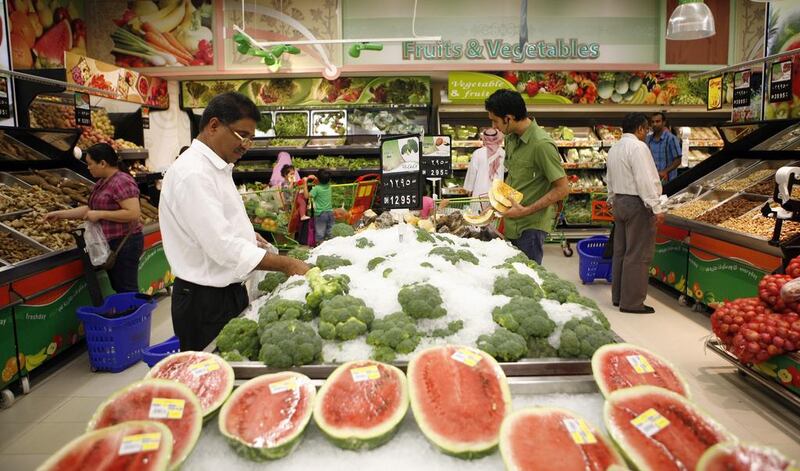The statistics are troubling. Each day, 805 million people lack the proper nutrition to lead healthy and active lives, yet more than one-third of the food produced in the world is wasted. As The National reported yesterday, the United Nations has launched a campaign aimed at increasing awareness of global food wastage under the theme "Seven Billion Dreams. One Planet. Consume with Care".
It follows growing awareness of the problem around the world, including a new French law compelling supermarkets to donate unsold food to charity or to be used as animal feed or compost. There are healthy signs that people in the UAE, especially schoolchildren who were involved in World Environment Day activities on Friday, are starting to get the message about reducing the overconsumption of food and limiting the amount they waste.
We see waste all around us. Outside supermarkets, the skips are topped up each day with products that have just passed their sell-by date. Restaurants and hotels dispose of vast quantities of uneaten food from extravagant weekly brunches and, during Ramadan, iftar buffets. In our own homes, we over cater because we overestimate the amount we can eat or, if we have guests, we want to be seen as good hosts.
The solution is multifaceted. First and foremost, it comes down to changing our habits by buying and eating only what we need. Instead of shopping once a week, which would have to involve military-style planning of each meal to be accurate, we should shop more frequently for smaller amounts that we know we need and can use. This might mean there should be many more small “express” supermarkets that sell fresh food and other essentials. Supermarkets, too, could be more efficient, by improving their supply lines to limit waste, by discounting produce for quick sale before it is inedible and by following the French model of donating food to charity.
Changing our habits in these ways will not solve the world hunger crisis overnight, but it will help raise awareness, benefit the environment and improve our health. There is no downside.





